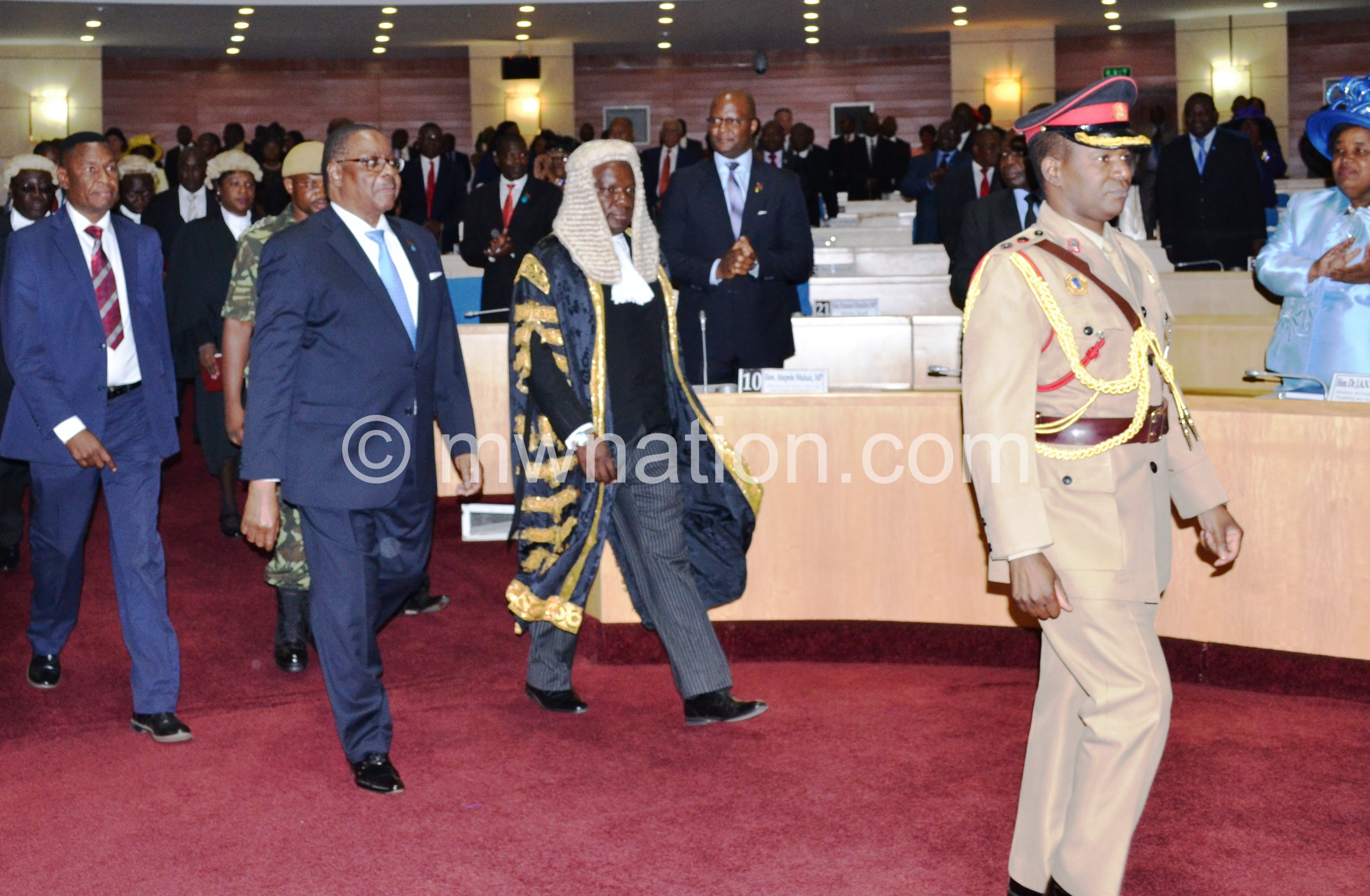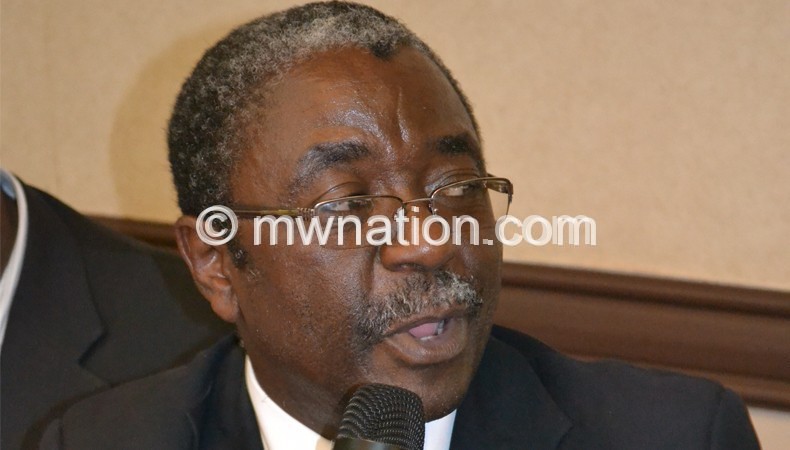House rules hook dodgy presidents
Revised Standing Orders sealing the loophole that Presidents have been using to dodge appearing in Parliament to answer questions from backbenchers will be tabled in November, Speaker Richard Msowoya said on Tuesday.
“The matter was on the order paper in the last session but members were not able to deliberate upon it due to time constraints, but that business is now going to be carried over to the next sitting in November,” he said.

Legal Affairs Committee of Parliament chairperson Maxwell Thyolera said on Monday his committee was tasked to seal the loophole which heads of State in the country have been exploiting.
He said: “We finished the task that we were given to lay down specific procedures that would pave the way for an annual appearance by the Head of State before the whole House to answer various questions of national importance. This is to operationalise Section 89 subsections 3 and 4 of the Constitution which [requires] a sitting president to be summoned to Parliament. Most past Heads of State have been delegating ministers whenever invited to the House.”
Thyolera said his committee has laid down specific measures to be followed where a president would be summoned at the beginning of each financial year.
He said the procedures included the mode of questions and the number of supplementary questions to be allowed per session.
“We hope this will be a watertight provision which will not be sidelined as is the case now,” Thyolera said. “We see the current President answering questions from Malawians on MBC TV. As such, there should be no reason why Malawians should fail to present their questions to the President through their elected representatives as the law stipulates.”
Although the country’s Constitution provides that the President should be summoned to Parliament to take questions from members of Parliament (MPs), only Bakili Muluzi once fulfilled the constitutional requirement.
But when asked why President Peter Mutharika was yet to appear before the House with only about 18 months to the expiry of his term, his spokesperson, Mgeme Kalilani, said the President was at liberty to delegate.

In an emailed response on Tuesday, Kalilani said: “The President has not failed to comply with any constitutional dictates in this regard. The Constitution allows the President to delegate some duties as long as it is within the law. The last time we had an invitation from Parliament for the Head of State to go and answer some questions he delegated that task to relevant Cabinet ministers.
“This was done because the nature of questions was such that even Ministers could easily handle them. Therefore, the issue of constitutional breach does not arise in the regard.”
Kalilani insisted that the presidency was in support of the processes that were being undertaken by Parliament through the Legal Affairs Committee to revise and have the new Standing Orders adopted.
Leader of opposition, Lazarus Chakwera, said in a telephone interview on Wednesday, the opposition was optimistic that the new Standing Orders will consolidate the constitutional provision that requires the Head of State to appear before Parliament for questions.
Said Chakwera who is also MCP president: “It has been a long struggle to have the Head of State appear before the House as such we thought that the operationalisation of the revised Standing Orders will ensure that the president complies with the laws of the country.
“The bottom line is that the principles of accountability and transparency should be adhered to. The President is answerable to the people. We are not there to embarrass him but he has to fulfil the dictates of the law. We believe Malawians will benefit more when these Standing Orders are finally put into effect.”
Other political parties represented in Parliament have also welcomed the coming in of the revised Standing Orders.
People’s Party (PP)interim leader Uladi Mussa said in an interview on Wednesday: “As parliamentarian we believe that we have not wasted time on this initiative. It is high time that a Head of State should come to Parliament to perform his constitutional requirement of answering questions from MPs. The thought that we are aiming at embarrassing a president should not be entertained.”
Mussa’s statement was echoed by United Democratic Front (UDF) spokesperson Ken Ndanga who said his party would support the adoption of the Standing Orders.
“As a party we will always support any law or provision that enhances democratic rule in the country. We believe that citizens would be the major beneficiaries of this programme. As such, we will support them as long as they do not target an individual.”
Ruling Democratic Progressive Party (DPP) spokesperson Francis Kasaila in a telephone interview on Thursday also said his party was not against the new Standing Orders.
“The question of a Head of State going to Parliament to answer questions should be seen from the perspective that a president cannot just go to the House. Parliament is a House of procedures. Until now there have been no specific Standing Orders to facilitate that requirement. As the DPP, we are not against anything. Even the State President has made it clear that he will defend the Constitution and that is what we stand for as a party.”
Chancellor College law expert Edge Kanyongolo in an interview on Wednesday said the powers to delegation was limited.
“Much as the President has the power to delegate, he or she cannot just delegate everything. There have to be limits to delegation of powers. If something requires the President to go to Parliament to answer questions, the holder of that office should comply.”





